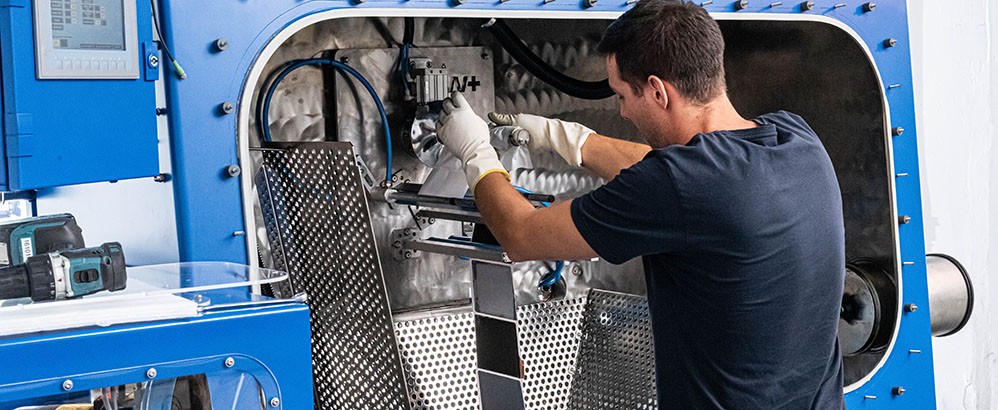On Friday, Kyburz Switzerland AG inaugurated an in-house plant for recycling lithium-ion batteries. According to the information contained in a press release, the specialists for electric commercial vehicles are therefore bringing the recovery process to a whole new level. After all, in contrast to the recycling plants commonly seen up to now, this new plant is able to recover up to 91 percent of the metals contained in the products for re-use later on.
Kyburz was not impressed by the sustainability aspects of recovery processes implemented up to now. These use a lot of energy, while valuable raw materials are also lost in the process. Therefore, the company came up with an “efficient, environmentally friendly and safe” alternative approach with the support of the Swiss Federal Laboratories for Materials Science and Technology (Empa) in St.Gallen and the Zurich University of Applied Sciences (ZHAW). The project team summarized their findings in a research paper, which was awarded first prize at the World Resources Forum.
As part of the project, ZHAW Student Oliver Groux developed fully chemical-free process. The young lab chemist and environmental engineer has been given the opportunity to implement his idea for the circular economy in practice by Kyburz. “An in-house plant for recycling our batteries is a huge step in this direction”, comments CEO Martin Kyburz. Oliver Groux’s bachelor thesis was described as containing some "pioneering work".
The long-term aim is to use this production facility to break down all LiFePO4 batteries ever used by Kyburz into their raw materials. In the first expansion stage, around 4,000 cells will be processed per year. In the final expansion stage, the recycling line will have a capacity of 24,000 cells.
The potential of this facility lies in its scalability. The process is designed to be “exactly replicated for the majority of batteries used in household storage devices”. Moreover, using certain chemicals, the process can also be applied to other types of lithium batteries that are used in the majority of electric vehicles.
Related news
Meet with an expansion expert
Our services are free of charge and include:
- Introduction to key contacts in industry, academia, and government
- Advice on regulatory framework, taxes, labor, market, and setting up a company
- Custom-made fact-finding visits, including office and co-working space
